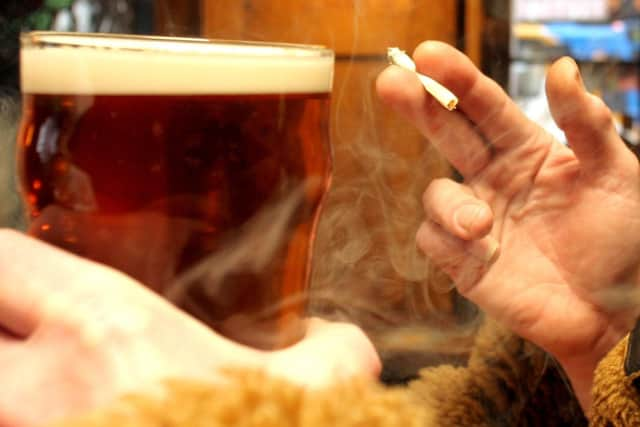Alcoholism rising in Calderdale according to latest Public Health England figures
and live on Freeview channel 276
The figures from Public Health England reveal on average 14 adults in every 1,000 in Yorkshire are dependent on alcohol.
The actual number of adults living across Yorkshire dependent on alcohol is reported at almost 64,000 in 2017/18, up from just over 63,000 back in 2010.
Advertisement
Hide AdAdvertisement
Hide AdIn Calderdale the estimated number of adults with alcohol dependency 2017/18 was 2,288


That has risen from 2,235 which was the estimated number of adults with alcohol dependency 2010
Bradford, Hull, Sheffield and Leeds were the only areas where fewer people were alcoholic than in 2010, however, despite this Hull still had the highest rate of alcoholism in Yorkshire, with 20 people per 1,000.
The lowest rates were in North Yorkshire and the East Riding, where the rate of alcohol dependency was half that of Hull.
Advertisement
Hide AdAdvertisement
Hide Ad“Unfortunately, alcohol is just as harmful a drug than heroin is, but a lot of people don’t or don’t want to see it that way,'' said UKAT’s group treatment lead, Nuno Albuquerque.
“Councils across Yorkshire assumed lead responsibility for alcohol service provision back in 2013, giving them full autonomy of how and where they spend their annual Public Health Grant, yet the numbers of people dependent on alcohol and in need of treatment overall is rising instead of falling. Although it is marginal, it should be the opposite direction. There is no excuse for this.
“Reports like these are produced to ensure that ignorance is not bliss; financial decision makers are given locally relevant prevalence estimates in order to better understand the scale of need in their area. Clearly, councils here have their heads buried in the sand about alcohol dependence because the numbers speak for themselves; in seven years, things have only got worse.”
In Yorkshire, there were 14 rehabs available to treat people with alcohol dependence back in 2013 and now only seven remain active, representing a 50 per cent closure rate.
Advertisement
Hide AdAdvertisement
Hide AdMr Albuquerque said: “Patient care at these particular residential rehabs is, in the main, funded by councils. If the councils decide to opt for other - more than likely, cheaper - types of care for their patients, like community day centres, then these facilities lack vital funding and over time have ceased operation.
"Quite simply, greater investment in effective treatment facilities, accessibility and awareness will help lower the number of people in this community suffering with alcohol dependence.”